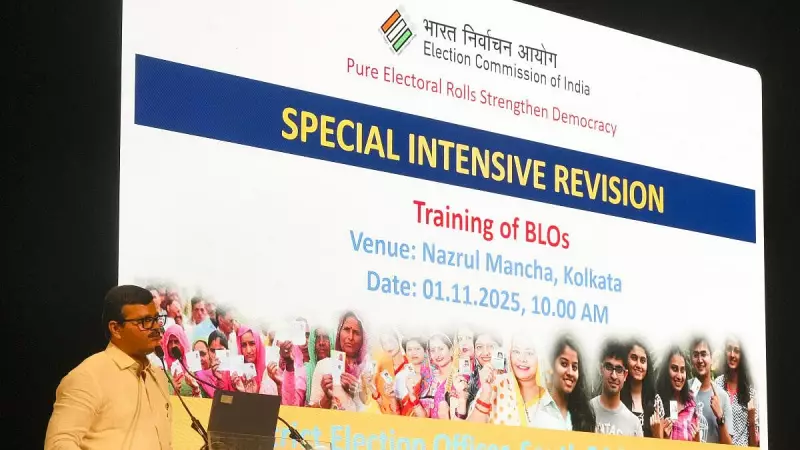
In a dramatic development that has shaken Kerala's administrative machinery, Block Level Officers (BLOS) across the state have launched a widespread boycott of official work. This unprecedented protest comes in response to the tragic suicide of a fellow BLOS officer, S Sreekumar, whose death has ignited political firestorms and demands for accountability.
The Tragic Incident That Sparked Statewide Protests
S Sreekumar, a 47-year-old BLOS officer stationed in Kottarakara, took his own life on Tuesday, sending shockwaves through the state's bureaucratic circles. The officer was found dead in a lodging facility in Thiruvananthapuram, with preliminary investigations pointing toward suicide as the cause of death.
The circumstances surrounding Sreekumar's death have become the focal point of intense scrutiny. Colleagues and family members allege that the officer was under tremendous pressure due to what they describe as "unreasonable demands" and "political interference" in his official duties. These allegations have transformed a personal tragedy into a systemic crisis affecting governance across Kerala.
Widespread Boycott and Political Fallout
In response to Sreekumar's suicide, BLOS officers across all fourteen districts of Kerala have initiated a complete boycott of their official responsibilities. This collective action has effectively brought numerous administrative functions to a standstill, impacting everything from local governance to public service delivery.
The opposition parties, led by the Congress and BJP, have seized upon the incident to demand a comprehensive investigation into the alleged role of CPI(M) leaders in creating the circumstances that led to the officer's extreme step. Opposition leaders have been vocal in their criticism, accusing the ruling party of using government officials as political tools and creating unbearable working conditions.
UDF convenor and senior Congress leader MM Hassan articulated the opposition's position clearly, stating that the incident reflects the deteriorating condition of the state administration under the current government. The opposition has called for immediate action against those responsible for allegedly pressuring the deceased officer.
Broader Implications for Kerala's Governance
The BLOS officers' boycott represents more than just a protest against a single tragic incident. It has exposed deeper systemic issues within Kerala's administrative framework. BLOS officers serve as crucial links between the government and local communities, handling everything from development projects to welfare scheme implementation.
The ongoing protest has highlighted what many describe as political interference in administrative matters, raising serious questions about the working conditions of government officials and the pressures they face from political quarters. The incident has sparked conversations about administrative autonomy and the need for clearer boundaries between political leadership and bureaucratic functioning.
As the boycott continues, essential services and development works across Kerala remain affected. The state government faces mounting pressure to address the officers' concerns while ensuring that governance doesn't completely collapse. The situation remains fluid, with both the administration and protesting officers watching closely for developments that could break the current impasse.
The tragedy of S Sreekumar's death has thus become a catalyst for broader discussions about administrative reforms, political accountability, and the protection of government officials from undue pressure. How the state government responds to this crisis could have lasting implications for Kerala's governance structure and political landscape.






